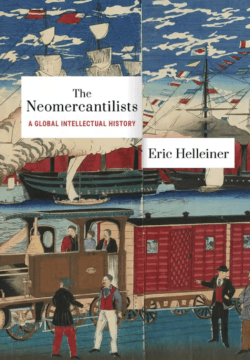 Justin Vassallo in Phenomenal World:
Justin Vassallo in Phenomenal World:
In the wake of Donald Trump’s surprise victory in the 2016 US presidential election, defenders of the postwar liberal international order panicked over the return of their bête noire: neomercantilism. Signs of nationalist protectionism meant the revival of neomercantilism, a surge in trade wars, and the loss of the cooperation and openness that underpins globalization.
In light of the resurgent emphasis on the importance of energy independence, greater fixed investment, and reviving domestic production, now is a critical time to acquire a better understanding of this misunderstood and oversimplified philosophy. As defined by political scientist Eric Helleiner in his engrossing new book The Neomercantilists: A Global Intellectual History, neomercantilism was, before 1939, “a belief in the need for strategic trade protectionism and other forms of government economic activism to promote state wealth and power in the post-Smithian age.” Helleiner’s book is essential for grasping earlier theories of state-led development that diverged from classical liberalism, as well as their relevance in an era where pandemic-induced supply chain disruptions and Russia’s war in Ukraine have further eroded confidence in globalization.
One of Helleiner’s central theses is that neomercantilism had a truly global span, with endogenous roots outside of Western Europe and North America.
More here.
